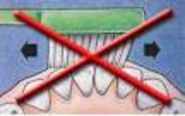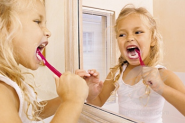-
About
- About Listly
- Community & Support
- Howto
- Chrome Extension
- Bookmarklet
- WordPress Plugin
- Listly Premium
- Privacy
- Terms
- DMCA Copyright
- © 2010-2025 Boomy Labs

 Meagan Hollman
Meagan Hollman
Listly by Meagan Hollman
Brushing your teeth isn’t exactly a science, though it often feels like one. Thousands of students in Utah are filling up dental assisting colleges
to learn how to take better care of their teeth, and the public’s. Take a look at what they’re learning, and discover ten tooth brushing mistakes.

Do not brush your teeth horizontally—this can hurt the gum line. Gently brush up and down your teeth in soft, circular motions, just like you learned as a toddler, or at your Utah dental assisting college. Don’t forget to brush all tooth surfaces, and your tongue—that’s super important to keep the germ count down.

Bacteria will permeate an un-rinsed toothbrush, so when you stick it your mouth the next time to brush, you’ll be putting old bacteria back in. Ick!

Get one with a comfortable handle and fits perfectly in your mouth. If you’re straining like you’re taking a bite of a big sandwich, the brush is probably too big.

The American Dental Association (ADA) recommends soft-bristle brushes. Bristles that are too stiff can hurt your gums. Don’t use “natural” brushes made with boar bristle or animal hair; they can harm your teeth.

Bacteria grow best in moist places, aka, your toothbrush if you don’t let it dry after use. After a good rinse, tap the water out of the brush and put it in a clean, dry place.

Brushing can get boring. If you start in the same place each time you might get lazy with the rest of your mouth. Mix it up each brushing to make sure your whole mouth gets clean. Watch a little TV as you do it—or study for the nutrition class you’re enrolled in at that Utah dental assisting college.

You know the rule: brush at least twice a day, though three times is best. Bacteria-ridden plaque builds up between brushings, so if you’re not brushing often enough, you run the risk of cavities. Brush for two to three minutes.

Brushing too hard can wear down tooth enamel, and brushing too often can irritate the roots of your teeth and your gums. Be gentle, and keep to the brushing maximum of three minutes, three times a day.

These are the spaces on the back of your teeth where your tongue presses against. Be sure to brush this plaque playground well.

Buy a new brush at the start of each new semester at your dental assisting college in Utah. That way you’re practicing what you’re learning to preach.
